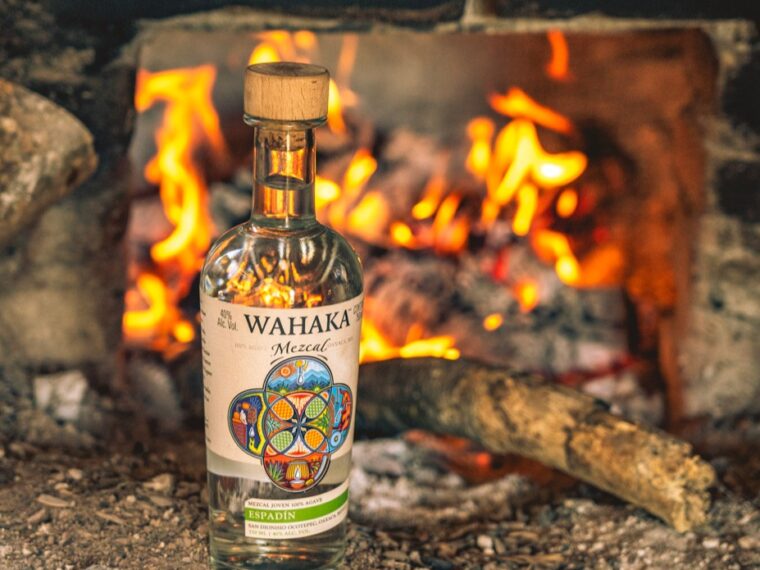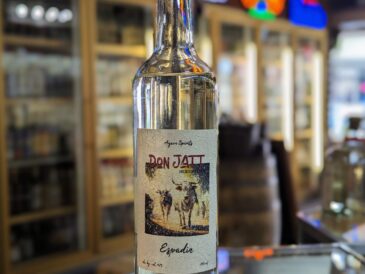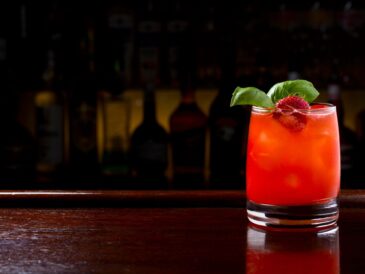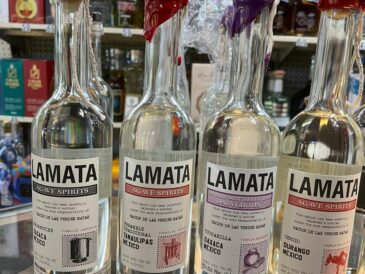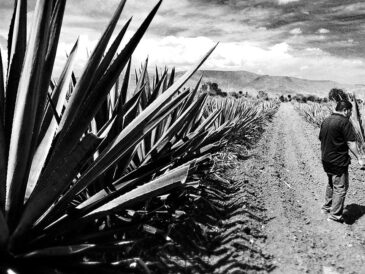
We recently caught up with Raza Zaidi, Managing Partner at Wahaka Mezcal. He is the person who introduced us to Pulque. He was kind enough to share the history of Wahaka and his insights on the Mezcal market.
How did you first become involved with agave spirits, and what drew you to them?
When I moved to the US from Mexico, I was struck by the significant misrepresentation of Mexican cuisine and gastronomy. At the time, it was mostly limited to burritos and hard-shelled meat tacos. Despite studying engineering and working in the tech industry, I never imagined addressing this issue.
However, twenty-five years later, my group of school friends, who followed similar professional paths and settled in various US cities, found themselves with disposable income, leisure time, and a yearning to reconnect with our Mexican roots. Although most of the Wanaka partners were primarily interested in Mexican culture rather than agave spirits specifically, high-quality Mexican cuisine had already gained popularity, but agave spirits remained confined to tequila.
During our trips to Oaxaca in the 2000s, we observed the burgeoning mezcal industry but were also somewhat disheartened that mezcaleros weren’t receiving proper recognition. Brands would purchase from one mezcalero without giving credit to the label, and when the relationship turned sour, they would move on to the next mezcalero. We believed it was time to change this dynamic and establish a brand where the mezcalero held equal company shares alongside the entrepreneurial side. Thus, Wahaka Mezcal came into existence.
Could you share a brief history of Pulque and explain why you decided to import it?
Pulque, the original agave beverage with a history spanning thousands of years, is made by fermenting the sap extracted from the heart of a mature agave plant. When the plant reaches maturity, the pulque producer carves a large cavity in its heart, prompting the release of the sap known as “aguamiel.” This sap is then collected and placed in a fermentation vat, which naturally ferments to an alcohol content of 4-5%. According to legend, the indigenous people of central Mexico noticed that rabbits (and other rodents) would drink the fermented sap from mature plants and stagger away. Some experimentation with the plant led to the creation of pulque. This historical account also gave rise to the legend that Mayahuel, the goddess of agave, had rabbits as her children (the Tension Totochtli).
When the Spaniards colonized Mexico, they brought stills with them. Eventually, people realized that if agave naturally ferments alcohol, it could be transformed into a remarkable spirit with a bit of cooking, fermentation, and distillation. The best way to experience pulque is to drink it fresh at a pulqueria in Mexico. However, our sister company, Back Alley Imports, has searched extensively for high-quality bottled pulque and discovered Pulque Octli Conejo Blanco, which we import. Hopefully, you will begin to see more of it available.
Can you provide some insight into the origins of Wahaka Mezcal and the inspiration that led to its creation?
The brand name had already been trademarked by Beto (Alberto Morales, our mezcalero) when we met him, as he used this spelling to teach Americans how to pronounce the name of his home state. As mentioned, the four entrepreneurial partners are friends from Mexico City, and some of us have known each other since kindergarten! While exploring ways to create a mezcal, we encountered Beto, and the connection was immediate. We knew he was the ideal person to help us develop a lasting mezcal and brand. Today, our bond is akin to that of brothers.
What sets Wahaka Mezcal apart from other mezcals in the market, particularly regarding its flavor profile and production methods?
Wahaka Mezcal embodies the craftsmanship (or perhaps magic?) of Alberto Morales, a fifth-generation mezcalero hailing from San Dionisio Ocotepec, a region with its distinct terroir. All of our products are crafted by Beto in San Dio. Each mezcalero possesses unique production techniques (and secrets?) passed down through generations. As a result, no single, prominent factor distinguishes the taste or flavor profile. Instead, Wahaka Mezcal represents the exclusive expression of an individual, making it truly one-of-a-kind.
How does Wahaka Mezcal commit to sustainable production practices and preserving traditional mezcal-making techniques?
Wahaka Mezcal does a fair amount of sustainability projects. We are particularly known for our reforestation program for wild agave. We have nurseries where we grow wild agaves (tobala, madre cuishe, and to a lesser extent, jabalí) from seed. We take the pups out twice yearly and reforest them in the fields and hills around San Dionisio Ocotepec. We invite industry people to come to our April reforestations which are always held on Earth Day. In addition, a percentage of our espadin is always allowed to flower to ensure biodiversity amongst the estate-farmed agave. Our fields have programs to recollect/recycle pencils after corte. At the palenque itself, we have to recycle programs for the bagasse. Areas of improvement are bringing gas to the stills (instead of wood fire).
Can you discuss the relationship between Wahaka Mezcal and the local communities involved in its production? How does the brand contribute to its economic development and cultural heritage?
The advantage of making Alberto Morales an equal partner and shareholder in the company is that it gives us inside access to the community to run some very cool programs — in particular, we fund the music programs at the elementary school, supplying the instruments and directly paying for the music teacher. In addition, we purchase all the equipment for the sports teams (futbol, basket)…also, the four other Wahaka Mezcal partners are from Mexico City, and we use our connections there to collect kids’ clothes/toys once a year which we then distribute on Dia de los Reyes Magos.
As an early player in the Mezcal market, how have you observed the industry change, and where do you see it heading in the future?
The landscape has transformed dramatically since we began. Initially, there were 15-30 brands, with perhaps ten available in the US, all produced in Oaxaca. In 2012, we launched our Vino de Mezcal project in collaboration with Erick Rodriguez to showcase the work of exceptionally small-scale mezcaleros and those from other, lesser-known mezcal-producing states, such as Puebla, Nuevo León, San Luis Potosi, Estado de Mexico, and even Guerrero and Michoacan, which were underrepresented in the US market. These initial mezcals introduced audiences (and entrepreneurs) to the vast world of mezcal. As a result, many of these mezcaleros gained fame and now have brands, thanks to entrepreneurs who have assisted them with bottling, labeling, exporting, etc.
However, this growth has brought its share of problems. During my time in the industry, wild agave varieties like the can study have gone extinct due to overharvesting. Politics, jealousy, and infighting in the certification realm have also caused confusion and the “balkanization” of mezcal. Now there’s bacanora, raicilla, and destilados de agave, essential mezcals under different names. While it’s uncertain whether this causes confusion among consumers (they may not care), it is undoubtedly unnecessary.
How do you balance expanding Wahaka Mezcal’s market reach and staying true to the brand’s artisanal origins?
We have consciously grown at a slow, measured pace to ensure we can keep producing at the quality we like and that the consumer deserves/expects. We alternate between opening a new market, whether a new state in the US or a new country and then making sure we can increase production to satisfy that market with a quality product..and so back and forth. We are self-funded and don’t have much money to go crazy on increasing production anyway…
Are there any plans to broaden the Wahaka Mezcal product range? If so, could you give us a glimpse into potential new offerings?
The only recent growth area for Wahaka Mezcal as a company was the addition of El Güel Mezcal- a mezcal for use as the well in bars- produced by a mini-cooperative featuring young producers from San Dionisio Ocotepec and all overseen by Beto…We’ve tried to minimize the use of wild agave and are focusing most of our efforts on espadin products.
What guidance would you offer to budding entrepreneurs aiming to join the spirits sector, especially those interested in artisanal products like mezcal?
Don’t! There were merely 30 brands when we began, but now around 700 are registered with Comercam. It will be incredibly challenging to distinguish one mezcal among the 700. Mexico is synonymous with mezcal but represents numerous other exceptional things. Even within the alcohol domain, countless artisanal Mexican products have not yet reached the United States. This includes products with centuries of history and innovative additions to existing categories where Mexico imparts its distinct flair, such as gin, wine, and craft beer. I am especially captivated and enamored with Mexican gins.
